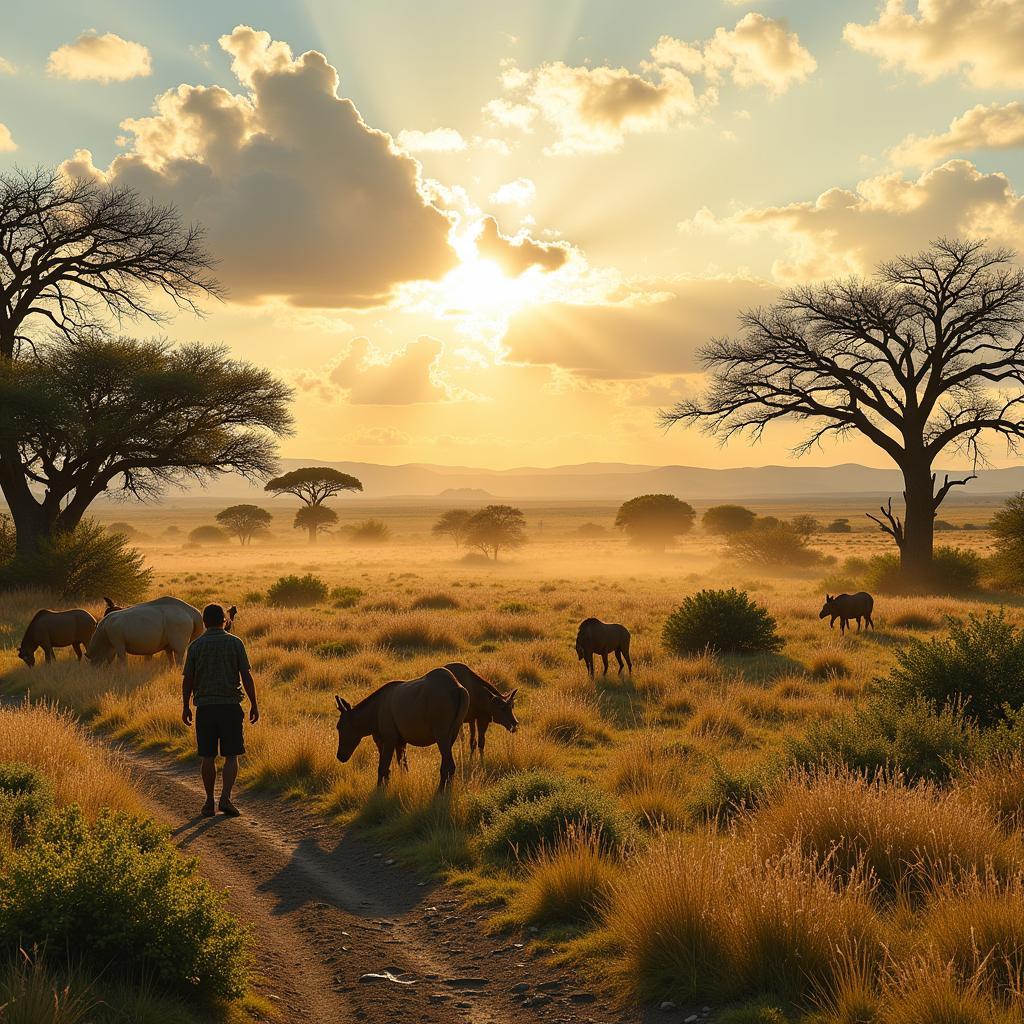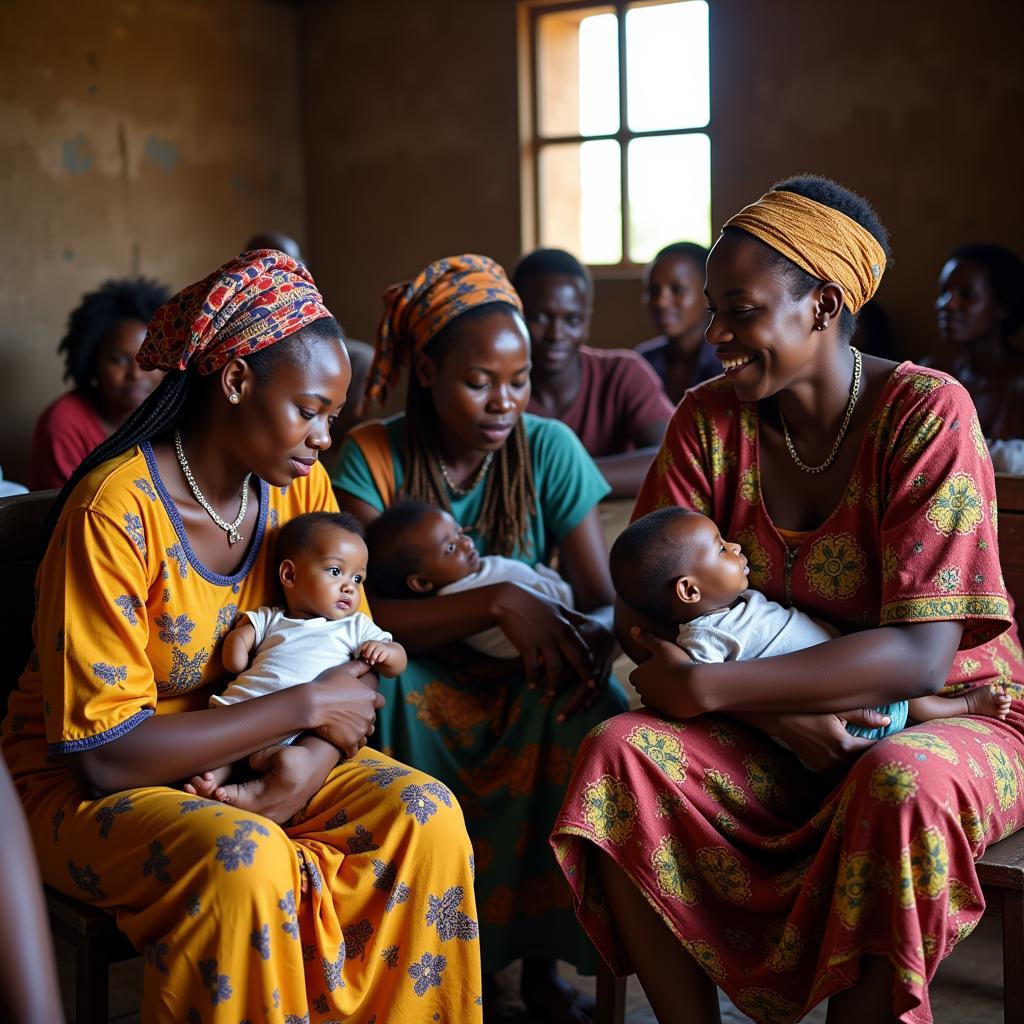African Countries and Regions: A Guide to Official Languages
Africa, with its rich tapestry of cultures and history, boasts an incredible linguistic diversity. It’s estimated that over 2,000 languages are spoken across the continent, reflecting its complex heritage and colonial past. Understanding the official languages of African countries and regions offers a glimpse into their unique identities and can be incredibly helpful for travelers, businesses, and language enthusiasts alike. Let’s delve into this fascinating aspect of African Life.
The Legacy of Colonialism on Language in Africa
The official languages of many African countries are often a direct result of their colonial history. European powers, during their period of colonization, imposed their languages on the native populations. This is why today, languages like English, French, Portuguese, Spanish, and even Arabic, hold official status in numerous African nations.
For instance, countries in North Africa, such as Morocco, Algeria, and Tunisia, recognize Arabic as an official language due to the historical influence of the Arab world. Similarly, countries like Nigeria, Ghana, and Kenya adopted English as their official language, a remnant of British colonial rule.
Beyond Official Languages: The Richness of Indigenous Tongues
While official languages are used in government administration, education, and media, it’s crucial to remember that they represent just a fraction of the linguistic landscape in Africa. Hundreds of indigenous languages continue to thrive, often serving as the primary means of communication within local communities.
Languages like Swahili, Yoruba, Hausa, Zulu, and Amharic are spoken by millions and play a vital role in cultural identity and preservation.
“It’s impossible to separate language from culture,” says Dr. Abena Ngugi, a linguist specializing in African languages. “These indigenous tongues carry within them centuries of history, knowledge, and tradition.”
Multilingualism: Navigating the Linguistic Tapestry
In many African countries, it’s common for people to speak multiple languages. This multilingualism is a testament to the continent’s diversity and the practical need for communication across different linguistic groups.
For example, in a country like Tanzania, while Swahili serves as the national language, English is widely used in government and education. However, within communities, you’ll also find a plethora of indigenous languages spoken, creating a vibrant tapestry of communication.
This multilingual environment presents both opportunities and challenges. It fosters cultural exchange and understanding but also requires careful consideration in areas like education and national unity.
Exploring the Linguistic Diversity of African Regions
Each region of Africa exhibits unique linguistic characteristics, often influenced by historical migration patterns, trade routes, and cultural interactions.
- North Africa: Dominated by Arabic, with influences from Berber languages.
- West Africa: Home to a vast array of language families, including Niger-Congo languages like Yoruba, Igbo, and Hausa.
- East Africa: Known for the widespread use of Swahili, alongside Afro-Asiatic languages like Amharic and Somali.
- Central Africa: Characterized by Bantu languages such as Lingala, Kikongo, and Sango.
- Southern Africa: A mix of Bantu languages, including Zulu, Xhosa, and Sotho, with Afrikaans also spoken in South Africa and Namibia.
Why Learning an African Language Matters
Learning even a few basic phrases in an African language can greatly enhance your travel experiences, demonstrating respect for local cultures and opening doors to meaningful interactions.
Moreover, for those interested in African literature, music, or film, understanding the nuances of language adds a whole new dimension of appreciation.
Continuing the Conversation: Languages and Identity in Africa
The linguistic landscape of Africa is a testament to its rich history, diverse cultures, and the enduring legacy of colonialism. While official languages provide a framework for communication, it’s the multitude of indigenous tongues that truly capture the soul of the continent. By celebrating and preserving this linguistic diversity, we honor the cultural heritage of Africa and ensure its vibrant tapestry of languages continues to thrive for generations to come.
Frequently Asked Questions About African Languages
1. What is the most widely spoken language in Africa?
While Arabic has the highest number of native speakers in Africa as a whole, it’s important to note that it’s largely concentrated in North Africa. Swahili, on the other hand, holds the distinction of being the most widely spoken African language, serving as a lingua franca in many parts of East and Central Africa.
2. How many official languages does South Africa have?
South Africa boasts an impressive 11 official languages, reflecting its multicultural population. These languages include Afrikaans, English, Ndebele, Northern Sotho, Sotho, Swazi, Tsonga, Tswana, Venda, Xhosa, and Zulu.
3. Are there any endangered languages in Africa?
Sadly, yes. Like in many parts of the world, globalization and the dominance of major languages pose a threat to smaller, indigenous languages. There are numerous endangered languages across Africa, highlighting the need for language preservation efforts.
4. Why do some African countries have European official languages?
The legacy of colonialism plays a significant role in this. European powers, during their colonization of Africa, imposed their languages, which were often adopted as official languages even after independence.
5. Where can I learn more about African languages?
There are numerous resources available, including online platforms, language learning apps, and universities offering African language courses. Additionally, exploring African literature, music, and films can provide valuable insights into the beauty and complexity of these languages.
Do you have any other questions? Feel free to contact us. We’re here to help!
For more information on African culture and travel, explore these related articles:
- African colonies of Spain
- African countries speak swahili
- African countries and regions dialing codes
- African countries and capitals wiki
Need help planning your African adventure? Contact us at +255768904061, email us at kaka.mag@gmail.com, or visit our office in Mbarali DC Mawindi, Kangaga, Tanzania. Our team is available 24/7 to assist you.

